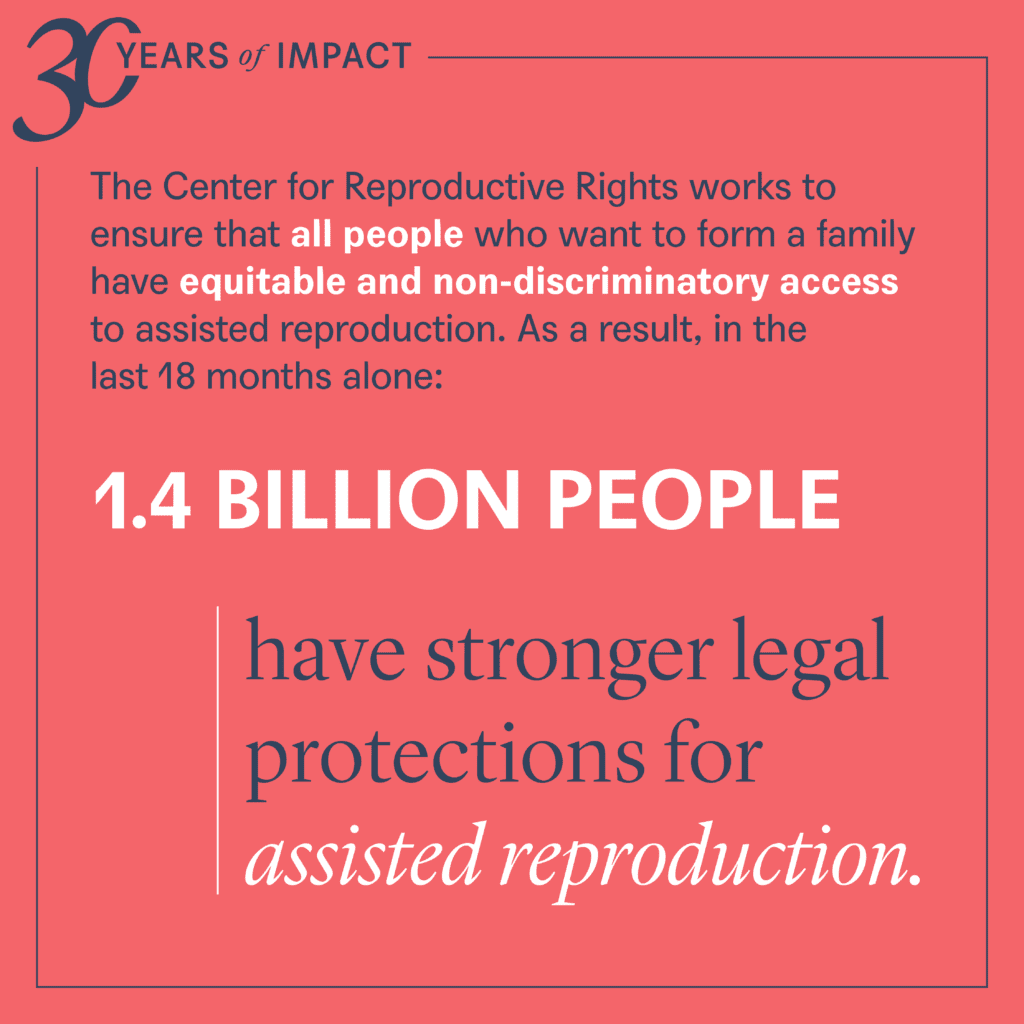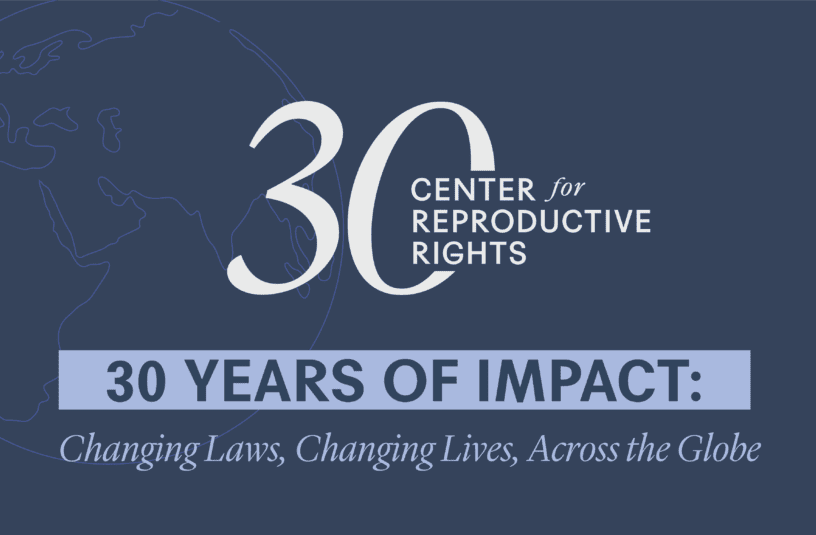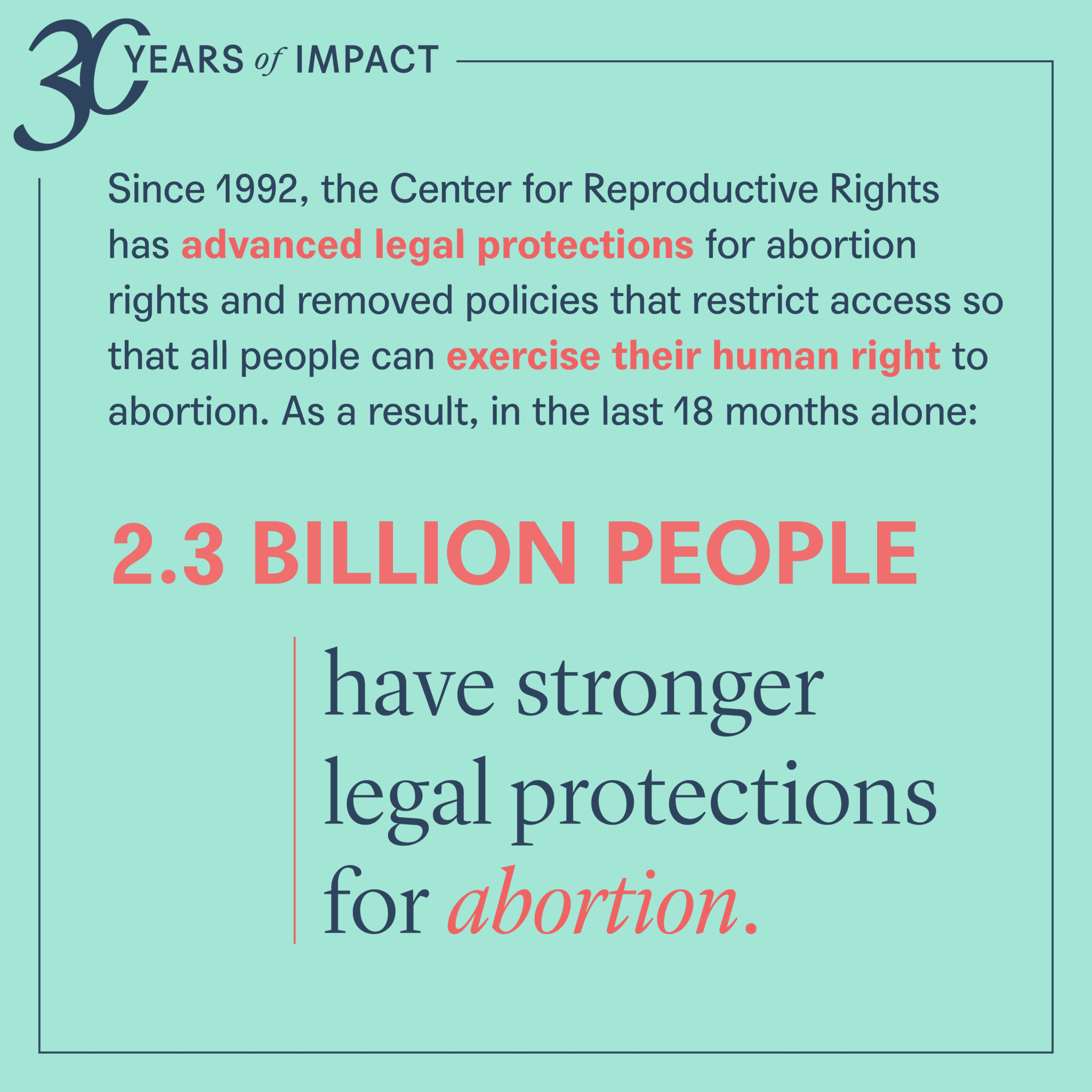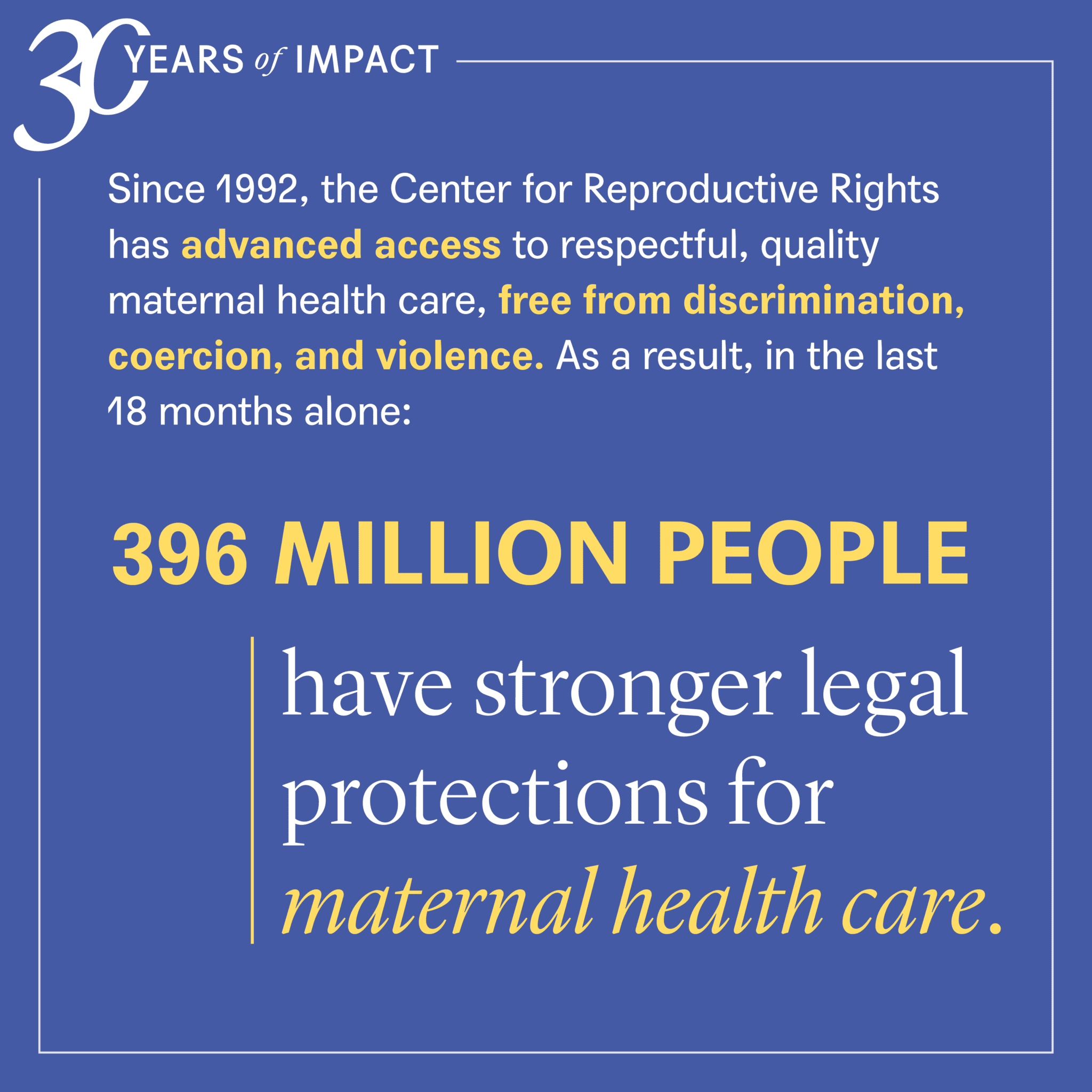30 Years of Impact: Ensuring Equitable Access to Assisted Reproduction

Access to assisted reproductive technology, such as in vitro fertilization (IVF), is part of the full spectrum of reproductive health care and impacts an individual’s human rights to autonomy, health, equality, and non-discrimination. The Center has been working to promote equitable access to assisted reproduction, advocating for laws and policies that ensure all people impacted by infertility have access to information and services, including IVF, free from discrimination.
As a result of the Center’s work, 1.4 billion people have gained stronger legal protections for assisted reproduction in the last 18 months alone.
In India, a new law regulating assisted reproduction incorporated several of the Center and its partners recommendations, including to follow WHO guidelines that define infertility. Though the law has some positive provisions, it is not framed within a rights-based model. The Center and partners are urging careful monitoring and implementation of the law from a rights-based perspective.
Assisted reproduction has always been interrelated with abortion and maternal health—with advances and setbacks in one of these areas impacting the others. We will continue to work worldwide to destigmatize infertility, advance abortion rights, improve access to maternal health care—and to ensure that every person has access to the full spectrum of reproductive care, including assisted reproduction like IVF and surrogacy.



